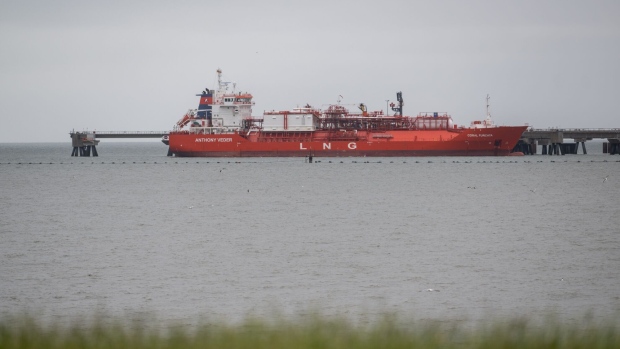Aug 25, 2023
German LNG Terminal Risks Delayed Start After Local Pushback
, Bloomberg News

(Bloomberg) -- A planned liquefied natural gas terminal at Germany’s Baltic coast risks not starting in time for winter, with local opposition to the project prompting a government warning about the fragile state of the country’s energy security.
German Economy Minister Robert Habeck cautioned there could be severe consequences if a second LNG terminal near the island of Rügen doesn’t begin operations this winter as planned, pushing local authorities to move ahead with its construction.
“Gas supplies must be planned in such a way that deliveries are secured even in the event of particularly cold weather or supply bottlenecks via pipelines,” said Habeck, who is also the country’s Vice Chancellor, in a letter seen by Bloomberg and addressed to the local state government.
“Otherwise, there is a risk of incalculable price increases, supply bottlenecks and severe economic damage, which would hit eastern Germany in particular,” he said.
Germany launched three LNG terminals to stave off last year’s energy crisis, and is aiming to open two more for the coming winter. The state of Mecklenburg-Western Pomerania — which has been critical of the Baltic project — commissioned lawyers who argued that it doesn’t fall under legislation to fast-track permits, according to Habeck’s letter. The lawyers also called for an environmental impact assessment, which would delay the terminal’s opening.
A spokesperson for the state’s economy ministry couldn’t immediately be reached for comment.
Habeck urged the state to ensure that the necessary approval procedures are carried out “with the efficiency required by the crisis.” A local municipality on Friday also said it had filed a complaint to the Federal Administrative Court to halt construction of an undersea pipeline for the terminal.
German gas storage operators have argued that additional LNG capacity is urgently needed to ensure energy security and smooth out potential strains from cold weather.
©2023 Bloomberg L.P.






